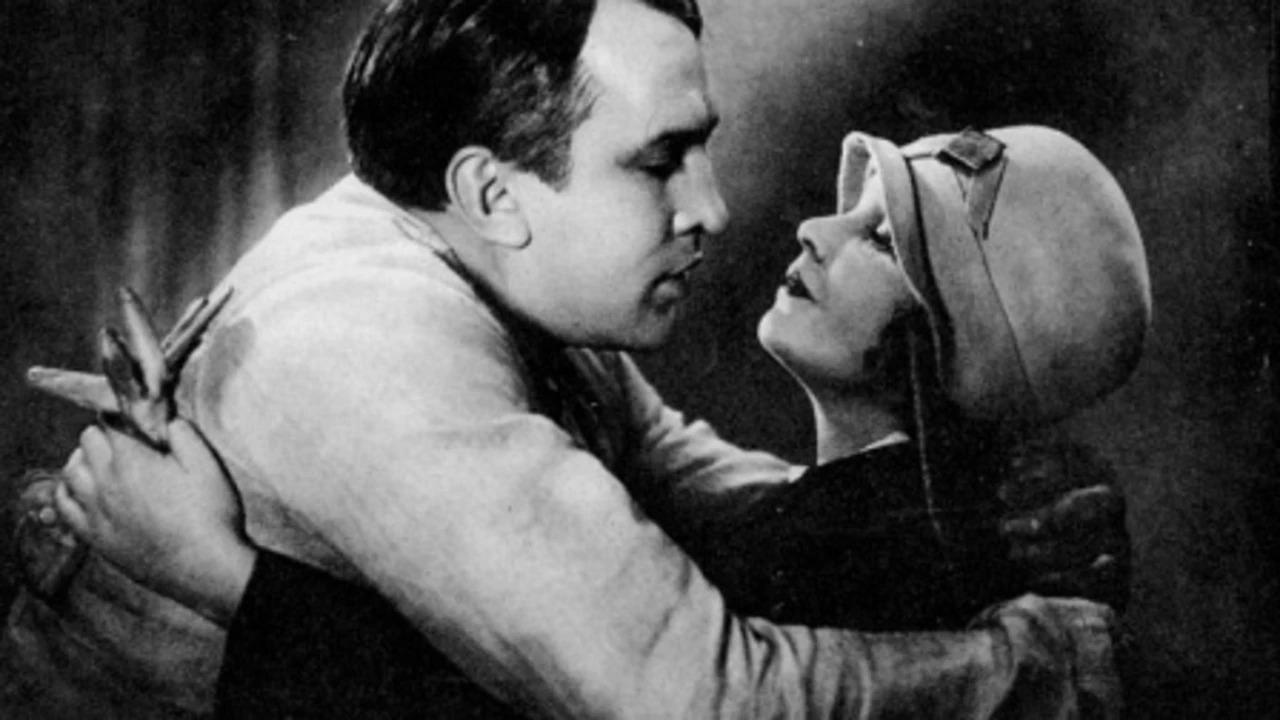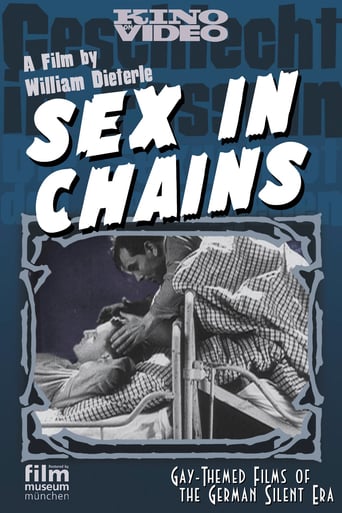

Lack of good storyline.
... View MoreHighly Overrated But Still Good
... View MoreThe plot isn't so bad, but the pace of storytelling is too slow which makes people bored. Certain moments are so obvious and unnecessary for the main plot. I would've fast-forwarded those moments if it was an online streaming. The ending looks like implying a sequel, not sure if this movie will get one
... View MoreClose shines in drama with strong language, adult themes.
... View More"Geschlecht in Fesseln" or "Die Sexualnot der Strafgefangenen" or "Sex in Chains" is a German movie from 1928, so two more years until it has its 90th anniversary. The title may sound like some hardcore porn or a film by Jesus Franco, but that's not even close. This is a black-and-white silent film that was released in Germany five years before the Nazis came into power. The director and lead actor is William Dieterle and he was in his 30s when he made this one, already a successful and prolific filmmaker. He broke through in Hollywood later too and became an Oscar nominee a decade after this one here. The cast is mostly German, but you will also find Scandinavians playing major parts. It runs for 90 minutes in the version I saw, but I also saw that there are versions out there (such as the original) which are approximately 15 minutes longer. Silent films usually struggle in two departments. The first would be overacting and the second would be lack of intertitles in quantity. The film does surprisingly good on both occasions, which is rare to watch in terms of films from this time of cinema. Intertitles exist in all kinds of languages (German original, English, French...), so you can see this one wherever you come from. But in terms of the story, I was not really convinced. This film sure had some lengths and I believe it may have worked better at half the runtime, 45 minutes perhaps. It is the story of a man who accidentally kills another man and has to go to jail. This jail time changes everything for him and for his girl. It is a pretty dark movie, including topics such as killing other people and committing suicide and the suffering in here is not just of a physical, but also of an emotional nature. Younger audiences were not allowed to see it and the Nazis banned it completely, which is usually a good sign for how authentic a film is. It may be authentic, but I just never found it interesting really. Then again I may be a bit biased as I have never really liked silent films. This one is not a failure for sure, but not good enough so that I would recommend it to anybody except huge silent film lovers.
... View Morepretty gutsy of Dieterle and the cast for even taking on this subject way back then; "Sex in Chains" (English-version of the title) can be divided into 4 parts - The first quarter is the love story of husband and wife, Franz and Helene Sommer, and how Franz gets tossed into prison. Part two shows the mental and sexual frustration they both feel being separated for so long; Part three is how they both deal with the "tension", and the last part takes place when they are reunited. Cant really discuss the last part (although I want to !) without giving away the ending of the movie. The middle of this film has the feel of a long documentary, with the plight (and resulting actions) of the separated husband and wife showing the dire need for prison reform. Seems to be about the last film project for mary johnson (Helene)and gunnar tolnaes (Steinau). These two do not appear to have been German citizens anyway, and may have needed to leave the country with the oncoming problems in Germany... Note that, starting in 1931, Dieterle's films all have English titles, as he was now in Hollywood. Plot and film quality are both in much better shape than "Different from the Others", but this one WAS made nine years later. As another reviewer has pointed out, this film is not at all pro-gay rights; the message is more "look what long separation of a married couple ends up doing to them and to society."
... View MoreI am total amazed to see this film with so high a rating on IMDb. This film is far from groundbreaking, and would never have been reconstructed, nor released on DVD, if it were not for it's 'gay' subtext. In these days of 'Will & Grace' and 'Queer Eye For The Straight Guy' any film with a gay theme seems to be considered brave, and innovative, when the actual artistic merits are ignored. 'Geschlecht in Fesseln - Die Sexualnot Der Gefangenen' aka is such a film.Director William Dieterle's first misstep was miscasting himself in the lead role. Although Dieterle was certainly a good looking man (In fact he resembles a young Gary Cooper), he exhibits no depth, and never seems to be really affected by the events unfolding around him, nor does he show any chemistry with either his male (Hans Heinrich Von Twardowski) love interest, or with his wife (Swedish silent star Mary Johnson). Calling Dieterle's performance wooden would not begin to adequately convey his lackluster effort. There were many young capable German actors at the time who would have easily been able to play Dieterle's role. Gustav Von Waggenheim ('Nosferatu'), or Hans Heinrich Von Twardowski already cast in this film as 'Alfred', would have been a more appropriate choice. Think of Harrison Ford portraying Jimmy Carter, and you will get a rough idea how badly miscast Dieterle (Never a good actor to start with) is.The second major problem with 'Sex In Chains' is it's over the top, melodramatic approach to the material. The story itself is pretty solid, but director Dieterle abandons the option of presenting the material as a structured,compelling narrative, and instead decides to use an over the top, emotionally manipulative, soap opera type approach, more appropriate to pre-1914 Hollywood, than to late 1920s Germany. Indicative of Dieterle's technique are: overly long exterior shots of German streets, and countryside done with a hand held camera which have only the vaguest connection to the actual plot. One cinematic non sequential scene is a long hand held shot panning from bottom to top of the prison, which again has little rhyme or reason. In another odd scene, which seems to be a 'What not to do' example for a film class, Helene Sommer prances hysterically about her apartment before she hallucinates, and sees the sitting figure of her imprisoned husband (a double exposed Dieterle in a scene that is oddly recalls the barge scene in 'Nosferatu'), then she wildly sprints around her apartment running into yet another apparition of Dieterle, and another...and another and another(!!??) At this point, I half expected to hear the cast of 'Mystery Science Theater 3000' to start riffing on this celluloid car crash! Another of Dieterle's touches is to show extreme facial closeups that seem to linger forever. I have no idea if these were artistic pretensions on Dieterle's part, or simply ineptness. I very much wanted to like this film. Take my word, do not waste your time on this film. Contemporary political correctness can not make a bad film good, and the fact that its a German silent by a director who later worked successfully in Hollywood, does not make it a good film. Avoid at all costs!
... View MoreDespite the title "Sex in chains" this film is hardly tawdry.Taken in its historical context,the subject material is surprisingly enlightened for the time.A man imprisoned and denied the company of his wife turns to a male inmate for companionship.This and the overwhelming humiliation of his imprisonment lead to his self destruction. Any sexual relationship between the two male characters is only very slightly hinted at,never the less the intent is clear to the viewer.I believe this film along with others made in and around the 1920's were part of a movement of "social enlightenment films" made in Germany,obviously before the Nazi's took charge.This one was dealing with Prison reform.If you are a student of film or love silent movies,or just a good drama.I recommend this film.
... View More